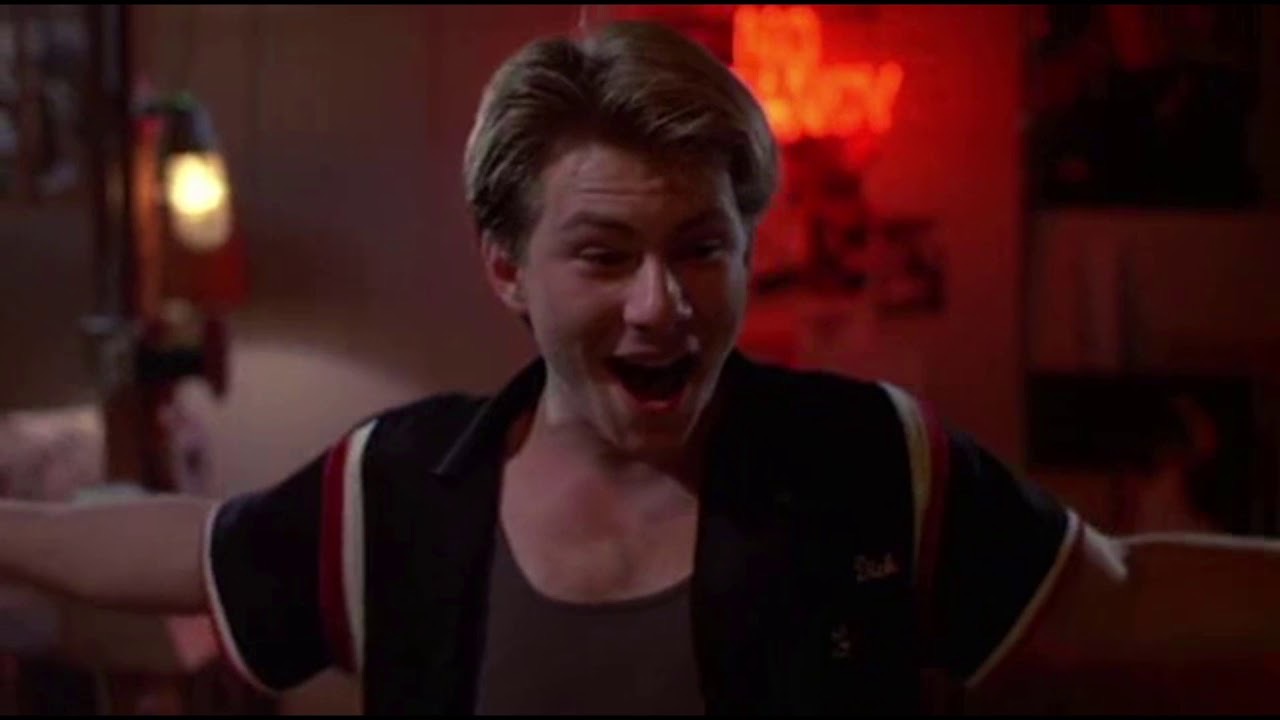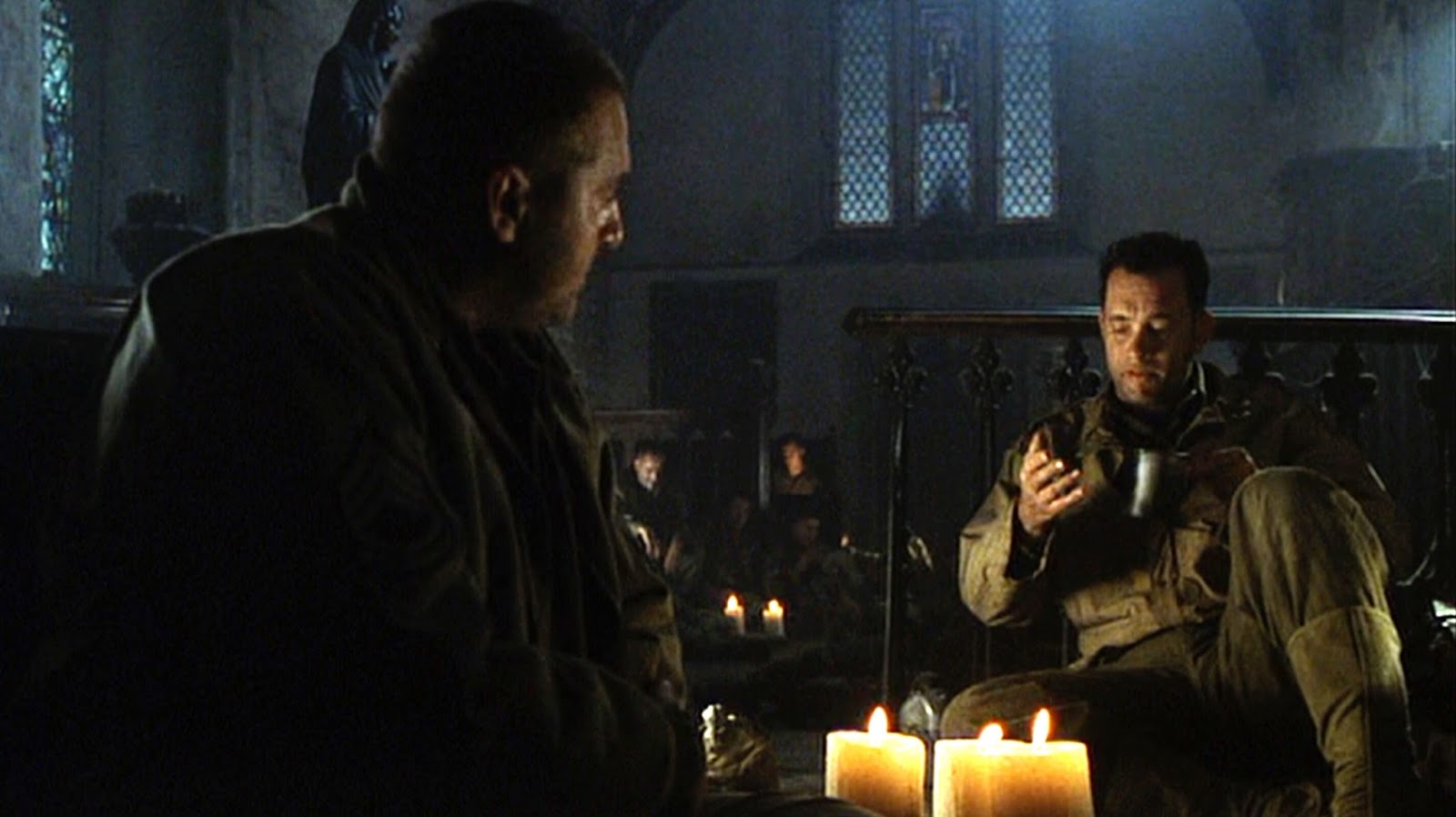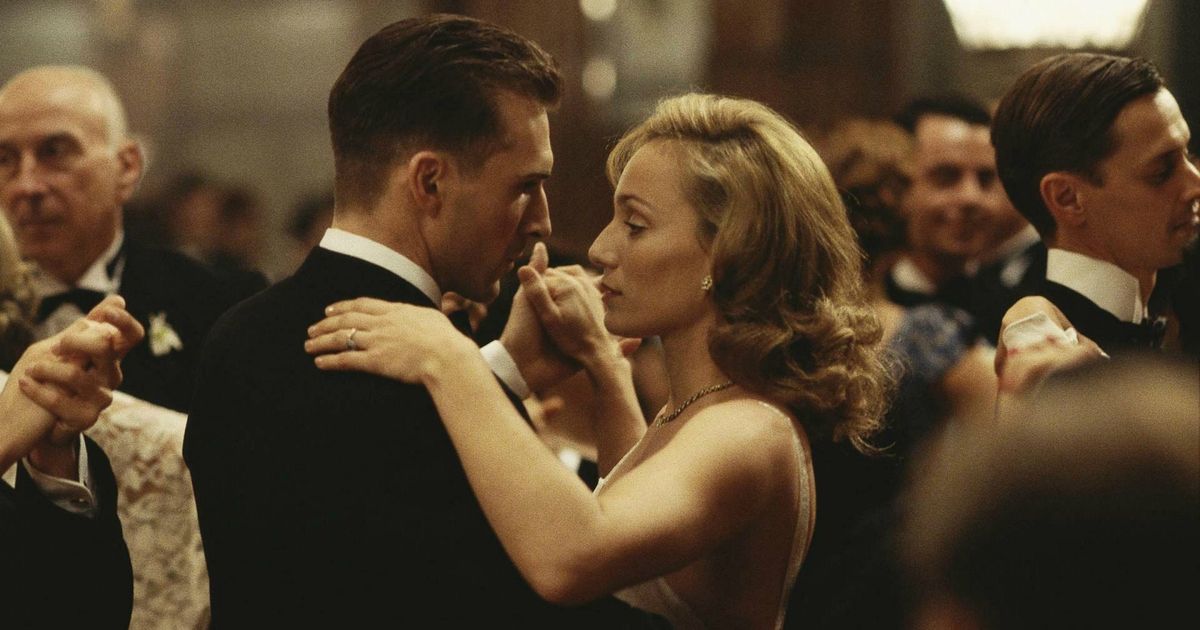It’s difficult to talk about movies when it feels like the world is coming to an end. Damn how I wish that was hyperbole. You turn on the news and riots are breaking out in the capital and you have to wonder to yourself, do people really want to talk about movies right now? How can you even form coherent pop culture thoughts in the midst of a potential constitutional crisis?
“You ever get the feeling that everything in America is completely fucked up? You know that feeling? That the whole country is like one inch away from saying ‘that’s it! Forget it!’ Think about it, everything is polluted.”
When I planned on writing about Pump Up the Volume I wanted to talk about its portrayal of learned empathy concerning disenfranchised students, LGBTQ+ youth, and the variety of outcasts presented and how they were systematically eliminated from school and other support systems mainly to juke education stats. The wonderfully monikered Happy Harry Hard On would emerge as a symbol of all that youth can do well, to provide a voice and for those on the edge of quickly being forgotten. That essay is still contained somewhere in here, but for me it was impossible to keep the focus when there is also teenage rebellion, and in this instance, well-earned rebellion, not that cheap bullshit I’m seeing on CNN right now where those who likely haven’t been repressed a day in their life are screaming about constitutional rights they know nothing about pushed forward by politicians and “media” that have never had their best interests at heart.
There is power in rebellion, power in the media, and power in energizing those who felt discarded, but that power must be welded tight to a good message and good old-fashioned human empathy in order to be productive and just.
So. Be. It.
To the uninitiated, Pump Up the Volume is a story of the aforementioned teenage rebellion. In a small Arizona suburb, Hubert H Humphrey High school principal Loretta Creswood has been finding ways to discourage, either through bullying or suspension/expulsion, underperforming or undesirable students from continuing their high school education. Leaving only the cream of the crop in attendance, her school performs well on standardized testing and gives her the glory of taking all the credit. She is assisted by her right hand man Murdock and the somewhat well meaning, but ill-equipped, guidance counselor David Deaver. We meet a few of the students during the opening credits, including the punk attired delinquent Mazz, the pregnant Cheryl, and Chavez, who’s only transgression appears to be his Latino heritage. We’re also introduced to Paige, who’s life seems perfectly splendid. She’s smart, pretty, and rich, so much that the outcasts of the film tease and dismiss her because she couldn’t possibly have the same problems they do.
At this point, we’ve seen this film a million times. Soon enough we will find a rebel, who through his charisma, examples, and leadership, will overthrow the school’s hierarchy and bureaucracy in one fell swoop.
Instead we get Mark, played by Christian Slater but without the dangerous cool he so easily possessed in Heathers. Mark is shy and meek, barely able to accept praise for his English paper (the theme of which is leading with the heart and not the mind) or to talk to the cute girl who is obviously flirting with him while discussing Lenny Bruce’s book How to Talk Dirty and Influence People.
In public, Mark is a dud.
Thankfully for the audience, when we first are introduced to Mark it’s not as the mild mannered schoolboy, but as the pirate radio deejay Happy Harry Hard On. Blanketed by a voice changer and the smooth voice of Leonard Cohen, Mark has the cojones to call out the guidance counselor and call him slime for the part he played in the expulsion of Cheryl and the subsequent blame for her situation, which was placed squarely on her young and terrified shoulders. The confidence Harry exudes, while jokingly only wearing a cock ring, is humorous and powerful to those who manage to tune in to his broadcasts.
Soon, Harry is a rising legend in the community, with more and more students listening in, trading mix tapes, and most importantly, writing in to the anonymous PO Box that Harry often reads aloud on air.
And this is where the film began to hit home.
One letter that Harry chooses to read on air is from Malcolm, a young man who says he’s going to kill himself. In tone with his outlandish nature, Harry questions the boy on how/where he’s going to do it, to which Malcom responds. He’s going to kill himself with a gun in his home. But when it comes to the “why,” Malcolm gives such an achingly honest answer. He’s going to kill himself because he’s lonely. At this moment, the persona of Harry disappears and we see Mark respond. He shares his feelings on loneliness in an attempt to connect but Malcolm soon hangs up, leaving us to wonder if he will fulfill his promise. Mark resumes his show as Harry and continues talking about himself.
Later that night, Malcolm shoots himself and dies.
Time for an honest interlude.
There are times I struggle with my mental health and I’d be lying if I said I’ve never had suicidal ideations. Last week when I discussed Goodfellas I talked a lot about I wanted to be a big shot like Henry Hill and bathe in all the accolades that come along with it. Who doesn’t want to walk into a room and feel important and respected among their peers? It’s easy to see how Henry fell into that traps he did because being liked feels fucking good and who wants that feeling to ever end?
In high school especially, there are times we need that acceptance and understanding more than oxygen, and when we’re deprived of it we feel isolated, helpless, desperate, worthless, etc, and we aren’t necessarily equipped with the best way to handle those extreme emotions at a young age. Thinking is easily clouded and choices that might seem like the only choice become possible to contemplate.
When my father lived at home, I had an acute awareness of where he kept his guns and where the bullets were stored. There were a variety of reasons I knew this information and they weren’t all based in self-preservation.
I didn’t talk to anyone about those thoughts for decades.
Growing up, loneliness and I were dance partners, often paired up each and every night in my downstairs room, sequestered and isolated from the rest of the family. There were nights I wondered what it would be like if I didn’t exist, what the world would be like without. Most of those nights I’d turn on the television and be comforted by a movie, or at least given enough of a distraction that I didn’t go to bed despondent for what the next day would bring. Looking back on it now, I’m quite certain I could’ve been diagnosed with depression, but at the time I took my lessons from Henry Hill and presented myself as a rather cocky and self-assured young man. My grades were good, I played sports, and those around me were none the wiser of the thoughts that plagued me at 1am. If the Happy Harry Hard On show had been real, I would’ve likely written him a letter.
So when Mark learns of Malcolm’s death and really felt it, I felt it along with him. Not long after first seeing this movie a friend of mine committed suicide. Like Mark, I’d also talked with my friend the day before. And while he said nothing of his plans, or even mentioned any sadness, I still felt guilty for not noticing anything. To this day I still wonder what I missed, what opportunity presented itself where I could’ve changed the outcome if only I had noticed. I wish I had the chance to tell him to not do it, and Mark wishes he had done the same.
Mark was lucky. In his despair he had someone who recognized his struggle, and surprisingly, it was Nora the library girl who had figured out who he really was. She helped him realize that he had what many of us don’t, a platform and a voice that could create meaningful change.
To go along with his voice, Mark also had empathy, and that quality is sorely lacking in much of today’s world. People are far too angry about their own perceived oppression and quickly dismiss real issues that not only effect them, but countless others in real and dangerous ways. Keyboard warriors are quick to condemn those who attempt meaningful change and yell about censorship when their hate speech is silenced. Voices of unjust anger have lead them to the point where they don’t care about the “others” who will “take” what they’ve “earned.”
They are afraid, and fear leads us to do stupid things.
But empathy for our fellow humans, that leads to understanding, understanding to real strength, and from that strength we can build hope.
And hope is what leads to change.
I challenge anyone to watch the scene with the young gay man who calls into Harry’s show and not feel something. He describes an encounter he had with a popular guy in school and how for a brief moment he believed he was liked and understood, only to have it taken away in a cruel manner. To listen to him say he wasn’t ashamed of who he was, only confused by his feelings, is both encouraging and heartbreaking, and the face of the listeners as he tells his story show their acceptance and love for this unnamed young man. While their stories might not be the same, they understand his pain.
But it wouldn’t be a revolutionary film without a bit of revolution, would it.
One of the shows listeners is Paige, the young woman I mentioned way back in the beginning. It seems her life, while seemingly perfect, was stressful and overwhelming, as she couldn’t handle the expectations pinned to her. In an act of small rebellion, she microwaves a bunch of her treasures and causes a small explosion in her family home. Soon enough, the Happy Harry Hard On show had the attention of the powers that be, including the FCC. Of course the community puts the blame on the show, but it is Paige who demands to speak in their meeting and states her reasoning rather plainly.
“We’re all really scared to be who we really are.”
Who of you out there reading this hasn’t felt that way at least once in your life? Did you pretend to like music you didn’t care about or kissed the ass of the popular kids in hopes you’d join them at the cafeteria table? Did you ever shamefully bully someone who wasn’t part of the popular group in order to elevate yourself even a little? I know I did. I try to live my life regret free as much as possible but it’s hard to forgive myself knowing that in the past I would tease people in order to be funny and it wasn’t until later that I stopped to think how it must have made them feel. I’ve done my best to balance out my scales in the following years, but some scars won’t heal as well as others.
When I started working with homeless youth, I knew deep down I didn’t start to do it just to make someone else’s life better, but to empty some of that reservoir of guilt I held on to for so long. Thankfully the empathy that I’ve been preaching about so much finally took hold and the work became worthwhile for a multitude of reasons and that little asshole that had been living inside me for years eventually became a nice guy.
“You have a responsibility to the people that believe in you.”
Nora tells Mark towards the end of the film, when the FCC and apparently every police officer in the area is on the lookout for him. There are car chases, fireworks, the students jumping on a limo, and eventually some of the forces for good win, exposing the school’s corruption, and most importantly, inspiring others in the crowd to find voices. We’re not sure how Mark’s story ends, because he’s taken by the authorities, but we’re assured his spirit lives on because we soon hear the voices of others starting their own radio shows.
“You’re not screwed up. You’re an un-screwed up reaction to a screwed up situation. You see, feeling screwed up in a screwed up place in a screwed up time does not mean that you are screwed up.”
Hopefully you’ll learn to seek out others like you who will provide you with love and understanding, who will bring out the best in you and challenge you to change the world around you in meaningful ways. Hopefully you’ll find your voice.
“Talk hard.”



Dan,
This is powerful. Seriously. The connections you make and the way you weave the details of the movie with the real-life lessons, combined with your own personal reminiscences, laced with an honesty you rarely find — it’s impressive as hell. And it’s true for the other posts on the site, as well. Thanks for sharing.
Thanks Chris! Hopefully I can keep the ball rolling with each post.
The parallel the world brought you is insane. You recognizing it is masterful. Thank you for your honesty.
Thanks Gibran! Sometimes the real world definitely makes our movie watching world a bit more interesting.
Damn, such an introspective entry. The way you blend self reflection, the movie and its message is haunting.
It hit me hard on a personal level.
Keep up the good work.
Thanks TJ! I’d like to think that great movies make these connections easier.
They do, which is why as a latchkey kid from that era I feel they connect so much. Maybe more than people realize.
We were rural kids with very few outlets, both from an activity standpoint, and a mental/emotional standpoint. This is why this entry hits home so hard.
Agreed. So many of us were practically raised by HBO.